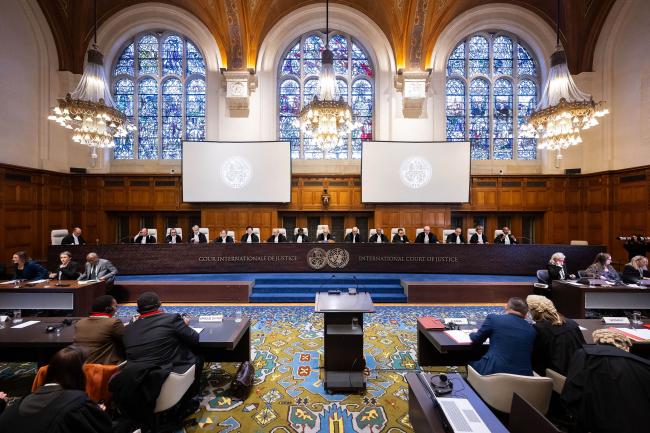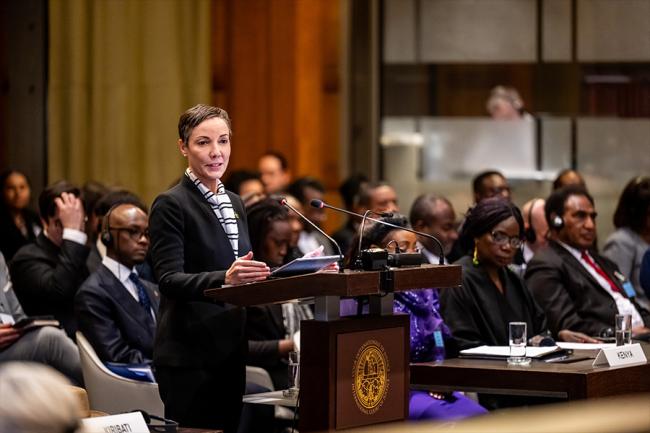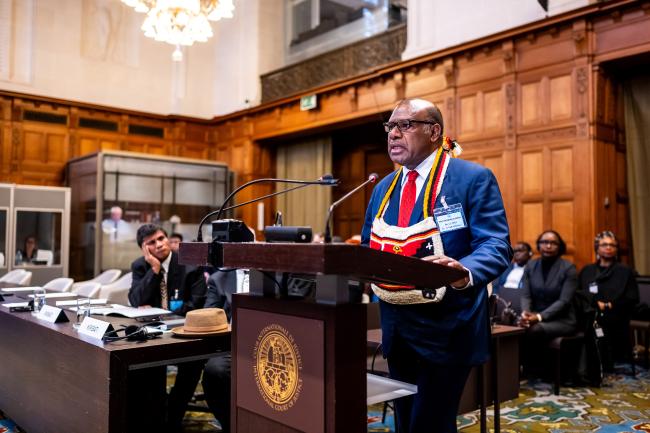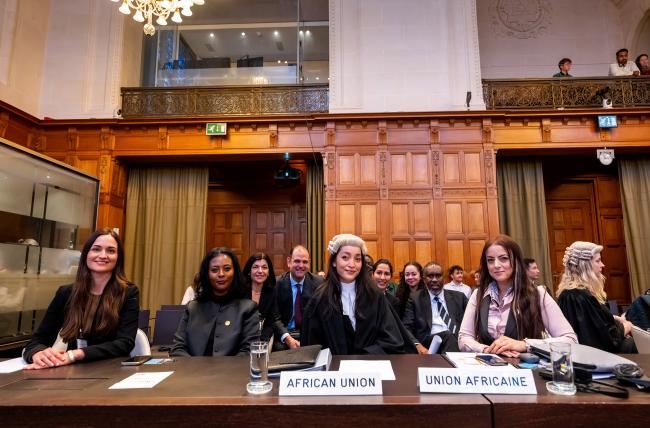Clearly, many vulnerable States are increasingly dissatisfied with progress under the UN Framework Convention on Climate Change (UNFCCC). In its first-ever appearance before the International Court of Justice, Papua New Guinea went as far as to denounce the “fanfare” of high-emitting States who fail to take sufficient action, noting that continued inequality and injustice had prompted the country to boycott the 29th session of the UNFCCC’s Conference of the Parties (COP 29). Jamaica underscored that the existence of the new Loss and Damage Fund and the “meager,” voluntary contributions to the Fund do not satisfy States’ duty to make reparations.
Want to dig deeper into today's statements? Read the full Earth Negotiations Bulletin daily report.
Speakers on Friday continued to highlight how climate impacts are already manifesting and compromising peoples’ lives and livelihoods. They pointed to the salinization of freshwater resources, disruptions to agricultural production, and the destruction of infrastructure, including schools and health care facilities. These impacts, alongside the permanent loss of biodiversity, affect both present and future generations, they said. Malawi suggested creating a reparation fund and a damage register to deal with breaches of climate obligations.
Countries already significantly affected by climate change outlined expectations for compensation. Jamaica not only called for finance, technology transfer, and capacity building, but also redress for the psychological toll associated with displacement and compromised food security, and specific support for scientific research in small island States.
To provide climate-distressed governments with dearly needed fiscal and regulatory breathing space, Kenya urged the Court to confirm that:
- unilateral debt restructuring or cancellation by vulnerable States, where climate change harms constitute grave and imminent peril, may be a legitimate circumstance precluding wrongfulness under international law; and
- where States implement regulatory measures that are in principle inconsistent with obligations owed to investors, such measures are justified when it is necessary to mitigate adverse effects of climate change.
“We have a right to stay in our homes, with our people. We do not want to be stateless refugees in other people’s lands,” lamented Kiribati.
Jamaica, Papua New Guinea, Liechtenstein, and Kiribati highlighted the threat of climate change to self-determination and called upon the Court to affirm the continuity of statehood and sovereignty over maritime zones. Maldives highlighted their refusal to implement a policy of forced relocation and pointed to developed countries’ obligation to support the country to adapt to its changing environment, rather than be torn from it. Latvia underscored its willingness to continue recognizing the statehood of countries whose territories are submerged by sea-level rise, drawing lessons from its own experience of preserving statehood amid “occupation by the Soviet Union.” Liechtenstein also supported recognizing States in their deterritorialized form.
To receive free coverage of global environmental events delivered to your inbox, subscribe to the ENB Update newsletter.




















